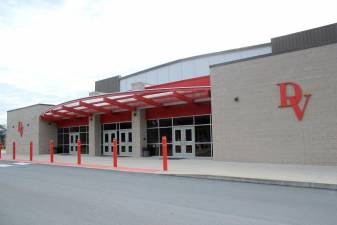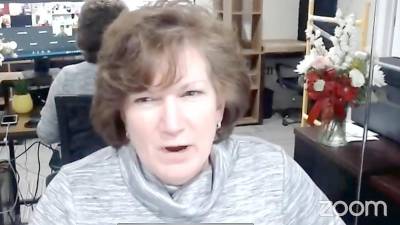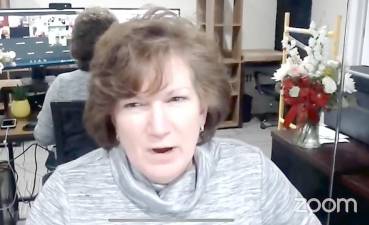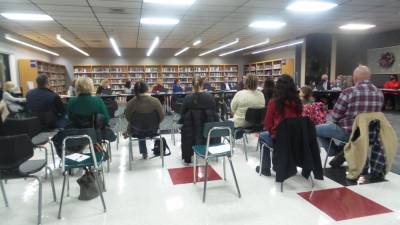Book defenders and detractors take the floor as board grapples with lack of high school librarian
Milford. The school board president, Jack Fisher, said the challenged books will stay. He suggested assigning a board member to serve as a liaison with the high school library to foster greater interaction.
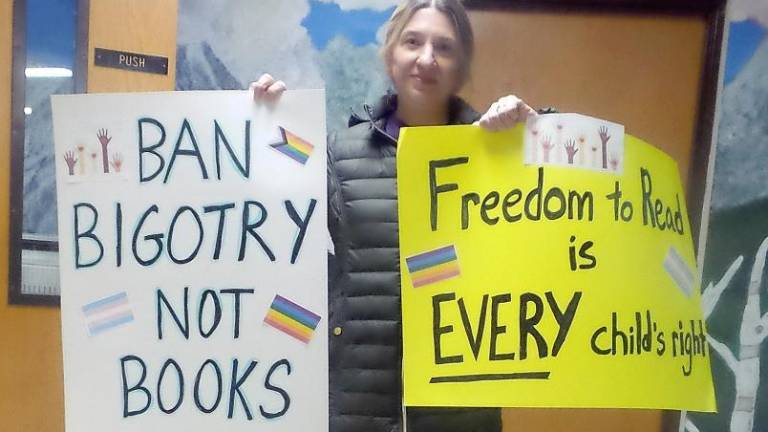
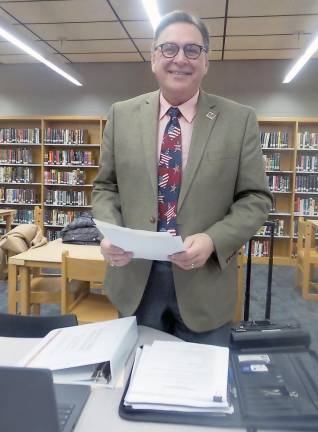
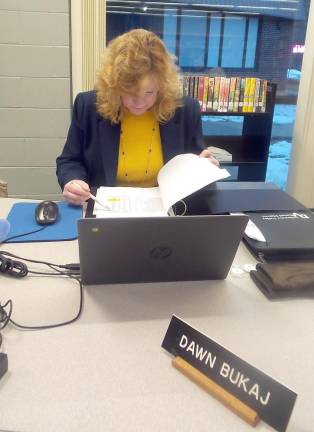


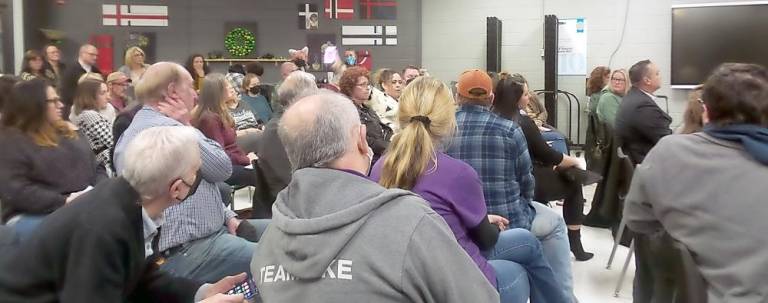
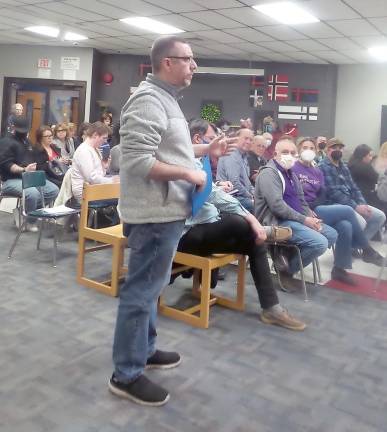
At a time when parents and members of the public are challenging the books on school library shelves, Delaware Valley High School finds itself without a librarian.
“Can we decide not to have a book in the library?” asked school board member Pam Lutfy at the board’s March 10 work session. She said it was important the high school had its own librarian.
The gap may be making itself particularly felt as members of the public turn out at school board meetings to ask about the availability of books dealing with race, sexuality, and LGBTQ themes. School board member Dawn Bukaj said at the March 10 meeting that parents can put notes in Destiny, the DV library’s management system, to prevent their children from checking out a specific book, or any book.
All the other schools in the district have a librarian. At the high school, department chairs pitch in. New books enter the Delaware Valley system through selections made by the librarian in each school, by department heads, and by teachers.
Matthew Contreras of Milford, one of the regular public speakers, is president of the Pennsylvania Advocacy for Children’s Education (PACE). It calls itself an “organic grassroots organization” that, among other things, “value(s) education over indoctrination.” At the March 10 meeting he said he added another book, on suicide, to the seven on his original list.
He said he wants to be collaborative. “I’m the last one to tell a parent what to do,” he said.
Gina Mancato said too many of the district’s books focus on suicide and rape, and how to get a gun to kill and hunt humans.
The school board president, Jack Fisher, said the books stay.
He suggested assigning a board member to serve as a liaison with the high school library, to foster greater interaction.
Not ‘how-to guides’
Defenders of the stacks came out as well (see statements in the Viewpoints section). Gretchen Pollack brought handmade signs that said “Ban bigotry not books” and “Freedom to read is every child’s right.” But, before the meeting began, she was told audience members could not bring in posters or banners, so she returned the signs to her car.
Frank Feely said Contreras’s goal was to draw tax dollars from public schools in order to destroy them. Contreras came to meetings to disrupt and cause trouble, Feely said, and that the board was allowing him and PACE to set its agenda.
The seven books at DV being questioned are The Bluest Eye by Toni Morrison; Beyond Magenta: Transgender Teens Speak Out by Susan Kuklin; Out of Darkness by Ashley Hope Pérez; Lily and Dunkin by Donna Gephart; The Absolutely True Diary of a Part-Time Indian by Sherman Alexie; TTYL by Lauren Myracle; and TTFN by Lauren Myracle.
Taylor James introduced himself as a gay man who graduated from DV in 2010. He read two statements “prepared by parents of trans and other LGBTQ+ children in our district who do not feel safe or welcomed enough in this room to speak for themselves. And neither do I.”
One of the parents’ statements said: “These books are not ‘how-to guides’ on becoming transgender,” said one parent’s statement. “These are novels which simply have characters that identify as a gender opposite from which they were born....They give a sense of belonging to a marginalized group of kids who very likely spend a lot of time feeling like they are alone. If you ban these books without legitimate cause you are telling LGBTQ youth at DV that they have something to be ashamed of.”
A woman in the audience said, “Before LGBTQ became a thing, did we talk about all this? It’s not appropriate to drill this into young minds.”
Hope Abrams said she went over “the list of 850 books that were banned in Texas because I was told that members of our community were looking to get some of those books banned here too,” and that “they all had to do with race, sexism and LGBTQ+ issues.” She said “talking about race doesn’t make you racist,” and that banning books that discuss race, sexism, and gender actually enforces systemic bigotry.
According to the U.S. Department of Education, National Center for Education Statistics, some 95 percent of elementary schools and 82 percent of secondary schools had a library or media center.
On average, there were 0.7 full-time certified librarians or library media specialists, 0.3 full-time library media center instructional aides, and 0.1 full-time library media center noninstructional aides per public school library or media center, according to the education department.
Editor’s note: This story has been updated.

